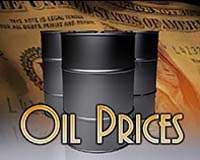 |
Tehran (UPI) Oct 1, 2009 As the United States and its key allies consider imposing biting economic sanctions on Iran, the prospect of a bruising oil war looms large. Even though Iran is a major oil producer and a key member of the Organization of Petroleum Exporting Countries, it has to import about 40 percent of its gasoline requirements -- the equivalent of 120,000 barrels a day -- because it does not have sufficient refining capacity of its own This is seen as its Achilles' heel, and cutting off these imports of refined products is the main objective of the sanctions package now under review. Given the political upheaval in Iran over disputed presidential elections in June, further economic hardship could ignite wider anti-government unrest, with unpredictable geopolitical consequences across the region. But if those sanctions are imposed, they could drive the Tehran regime to retaliate by seeking to block the Strait of Hormuz, the only gateway to the Persian Gulf. Iran controls the entire eastern shore of the Gulf. Some 40 percent of the world's crude oil supplies pass through that narrow waterway. Blocking it, by sinking ships or seeding it with sea mines, could cause global economic mayhem and send oil prices soaring again. That, of course, would mean that the Iranians would be blocking their own vital oil exports, the country's economic backbone, and would not be able to import the refined products by sea. But it is possible that they might cut a deal with Russia to transport what fuel they need overland by rail or across the Caspian Sea. The United States would not be able to enforce a blockade on the former Soviet republics, which have spare refining capacity. Russia, increasingly a U.S. rival, has supported Iran, building a nuclear reactor at Bushehr on the northern Gulf coast and providing advanced weapons systems, has given tactic backing for sanctions. But it would prefer not to jeopardize its sizeable economic links to the Islamic Republic. China, too, has no reason to support the United States and its European friends against Iran. China is a major importer of Gulf oil and Iran is its second-largest supplier. Beijing is in no mood to jeopardize China's rapid economic growth or its heavy investments in Iran. China has already tried to push back the prospect of crippling sanctions and through its veto on the U.N. Security Council will likely scupper any international effort to force Iran to abandon its nuclear program. Several of Iran's main gasoline suppliers, such as BP, stopped deliveries several weeks ago in anticipation that sanctions would be imposed. China has picked up the slack, for commercial as well as political reasons. The Financial Times estimates that Beijing is now providing about one-third of Iran's requirements, between 30,000 and 40,000 barrels a day. Malaysia's state-owned oil company Petronas delivered three shipments in August totaling some 93,000 barrels. Blocking the Strait of Hormuz would also cause economic trouble for the Arab Gulf states. They would not be able to export their oil and gas or import the food and other goods on which they depend for survival. Iran has weathered U.S.-led sanctions more or less since the 1979 Islamic revolution that overthrew Shah Mohammad Reza Pahlavi, a key U.S. ally, and it has had considerable time to stockpile gasoline to counter any more punitive measures. According to Tehran estimates, Iran has some 15.7 million barrels of gasoline stored, enough for about four months. The U.S. intelligence consultancy Strategic Forecasting says Iran probably has enough for three months' consumption stored on land or in tankers anchored in the Gulf. To ensure that sanctions are effective -- and experience has shown that they are often not effective, and usually take years to have a significant impact -- the U.S. Congress intends to first target traders who defy the embargo. Apart from China and Malaysia, these are primarily the Swiss traders Vitol and Trafigura, both of which use the United Arab Emirates, one of Iran's main trading partners, to refine, store and ship gasoline to the Islamic Republic. Share This Article With Planet Earth
Related Links Powering The World in the 21st Century at Energy-Daily.com
 Oil prices edge higher as market mulls Iran, data
Oil prices edge higher as market mulls Iran, dataNew York (AFP) Oct 1, 2009 Oil prices edged higher Thursday as the market assessed weak economic data and "constructive" talks between Iran and world powers over Tehran's sensitive nuclear program. New York's main contract, light sweet crude for November delivery rose 21 cents to close at 70.82 dollars a barrel, a day after soaring nearly four dollars. London's Brent North Sea crude for November traded 12 cents ... read more |
|
| The content herein, unless otherwise known to be public domain, are Copyright 1995-2009 - SpaceDaily. AFP and UPI Wire Stories are copyright Agence France-Presse and United Press International. ESA Portal Reports are copyright European Space Agency. All NASA sourced material is public domain. Additional copyrights may apply in whole or part to other bona fide parties. Advertising does not imply endorsement,agreement or approval of any opinions, statements or information provided by SpaceDaily on any Web page published or hosted by SpaceDaily. Privacy Statement |